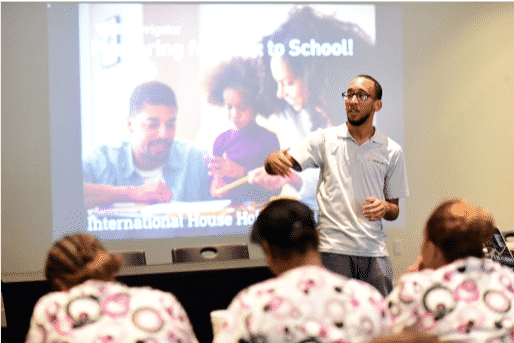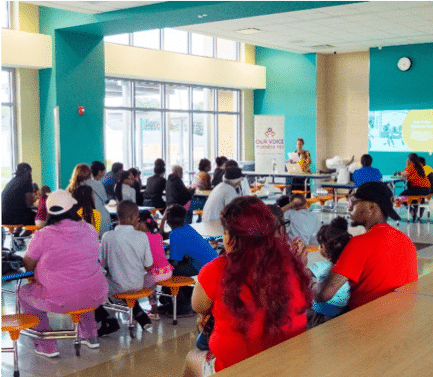WORKSHOPS AND TRAININGS
A workshop/training is a single or multi-part scope and sequence of programming to inform and organize parents so they can take action across a broad range of parent empowerment campaigns.
Downloadable measurement template
Below is a template of common measures organizations use in the parent empowerment space to manage workshops and trainings.
As a reminder, your organization should ‘Goldilocks’ what it measures. You should only capture measures that help your organization make better decisions to increase impact (and are practical to collect).
Many organizations measure a diverse range of outcomes from workshops/trainings, including satisfaction, knowledge, attitudes, and actions parents take after completing programming. The specific measures can vary based on the topics/purpose of programming and can include:
- Measures of Satisfaction
- Content
- Trust/relationship with organization
- Knowledge
- Elements of a 'high quality' school
- Supporting a child's needs and goals
- Rights and roles of those in authority
- School and student performance
- Attitude
- About school and education
- About their ability to exercise power and drive change
- Actions
- Online
- Real-world
 Overview of workshops/trainings
Overview of workshops/trainings
Workshops and trainings (along with 1:1 meetings) are the backbone of most campaigns that are seeking to build an infrastructure of parent power.
Workshops/trainings can:
- Inform and organize parents on how to take action on a specific issue that is important to them and the education of their children, such as partnering with their school or navigating school choice options.
- Support parents in exploring how power works in their educational system, and train parents in how to develop and apply their innate power as individuals and as a community to participate effectively in that power structure.
- Develop strong bonds between parents in a community and help them identify a collective action they decide to take to influence a change in their education systems.
Many organizations invest in measuring a broad mix of changes in satisfaction/perception, knowledge, attitudes and actions in order to understand if their investment in workshops/trainings is enabling parents to exercise their power. However, the specific things an organization measures will vary based on the content and objectives of the workshop/training in question. A workshop/training on how to understand and partner with a school will measure different things than a workshop/training on the electoral process, mapping power within a school system, and on how to participate as a voter in that system.
What is the specific structure and organization of a workshop/training? There is no one formula for how to design workshops and trainings. It is a judgment call, which is progressively informed by an organization’s experience with what it will take to build the skills of participants and accomplish its objectives. Some organizations offer a one-time workshop/training. Others develop a scope and sequence that will last a year. Yet others offer a continual cycle of workshops and trainings to provide ongoing capacity-building and support to its community of parents, with the needs of parents informing the agenda for ongoing sessions.
While specific decisions will vary, an organization should plan for the following when designing and executing workshops/trainings:
- Target audience
- Objectives – what does success look like (and of course how it is measured – a mix of satisfaction/perception, knowledge, attitudes and action)

- Dosage, including:
- Duration (over what period of time)
- Frequency (how often within that period)
- Intensity (how long is a session)
- Format, with an emphasis on what removes barriers to participation, including factors such as:
- # of attendees and/or ratio of staff to attendees
- Location (sufficient space, nature of space and ease of access)
- Time (timing of day, day of week)
- Amenities (food, parking, child-care, etc.)
- Different learning styles and a ratio of different activities (e.g., whole group lectures, small group discussions, activities and exercises, breaks, amount of time sitting vs. standing and moving, etc.)
- Community building for people to develop relationships with your organization and each other
- Quantifying the required talent, time and money to plan AND execute on a workplan/training BEFORE committing to it

225 Franklin Street, Suite 350
Boston, MA 02110
617.912.8800
This work is licensed under a Creative Commons Attribution-NonCommercial-ShareAlike 2.0 License (CC BY-NC-SA 2.0)
Click Here to learn more.
